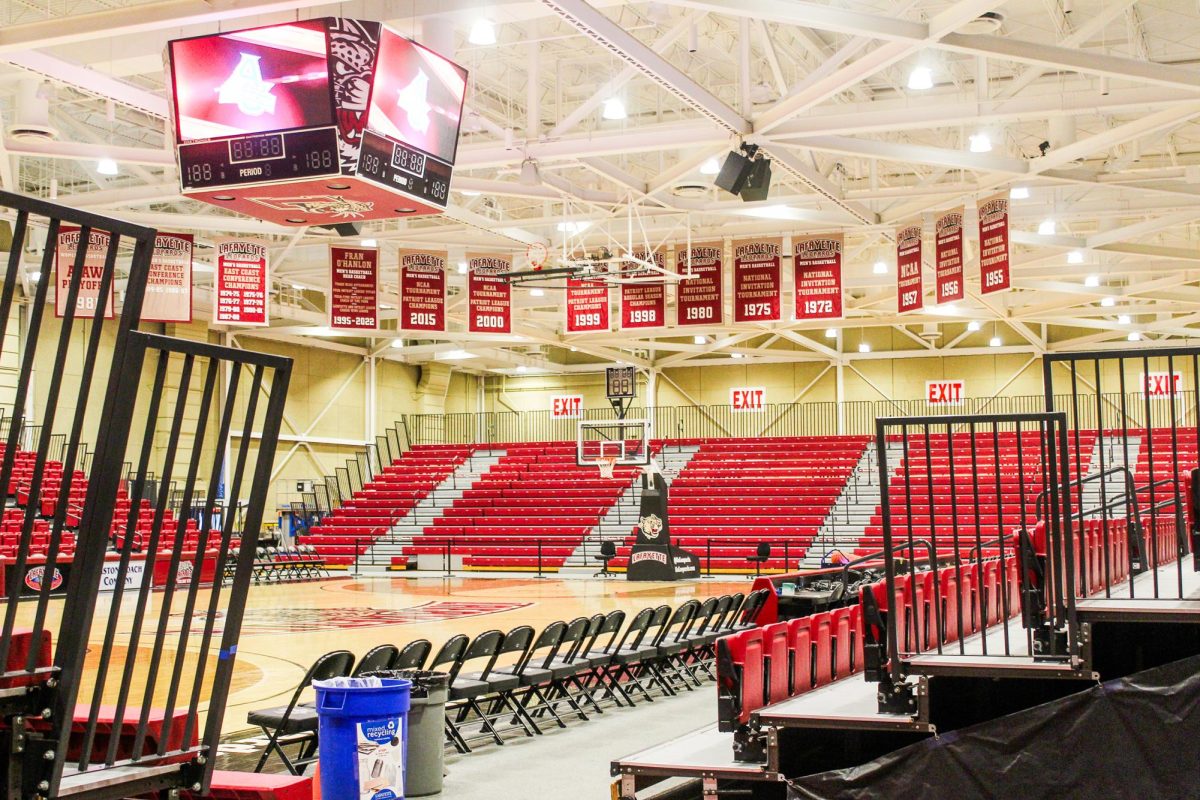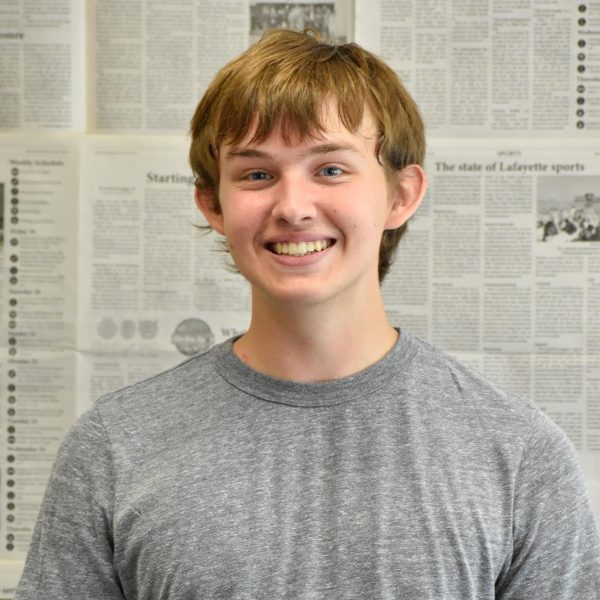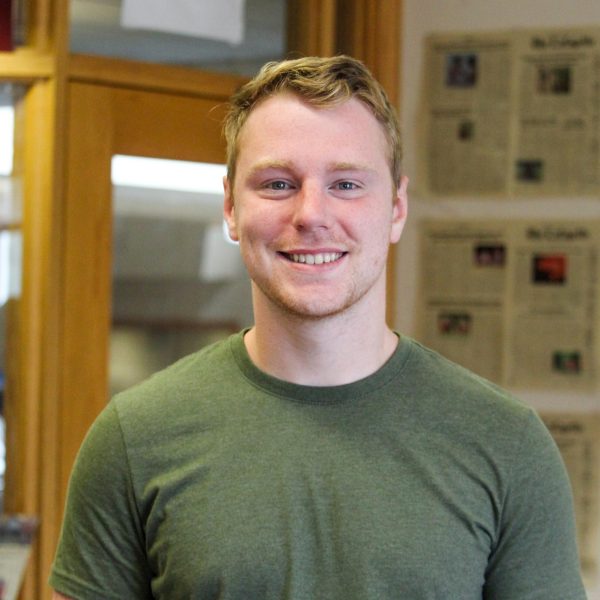The college, working with the Commission on Presidential Debates, has begun implementing plans for the highly anticipated vice presidential debate, scheduled for Sep. 25. Chief among the plans are an extended closure of the gym and media opportunities for students.
A debate website was released today by the college. The website contains the announcement of new planning committees, a map of closures on campus and a frequently asked questions section that is expected to be updated in the coming weeks and months.
The decisions were spearheaded by Scott Morse and Geoff Labe, assistant vice president for communications and marketing and assistant vice president of finance and administration for business services, respectively. Both Morse and Labe serve on the college’s Vice Presidential Debate Committee, which was announced on the website. Labe is the chair of the committee.
There will also be a Vice Presidential Debate Operations Planning Group which includes administration and staff from Facilities Operations, Dining, Business Services and one student, Summer Troxell ‘26, will also be heavily involved in debate preparation.
As the planning process continues, more members of the campus community, including students, will be able to participate, according to Labe.
“We want students and other community members to be involved so that we can plan events and activities that align with their expectations,” Labe said. “The debate is only successful if everybody’s involved with it.”
Also according to the website, Kirby Sports Center, the location of the fitness center, will be closed for approximately five weeks from late August until the time of the debate; the debate will take place in the Kirby Sports Center basketball arena. Athletes practicing in indoor spaces will be impacted by the closures.
Indoor athletic teams affected by the gym’s closures, such as the swim team, have currently not made any plans for adjusting practices. Labe emphasized that the Vice Presidential Debate Committee is working with the Recreational Services to find other ways for students to participate in athletic activities.
“We are formulating alternative plans, we’re close to that being done,” Labe said.
College president Nicole Hurd said that the administration is committed to providing an alternative on-campus space for student activities impacted by the gym closure. Areas besides the gym will also have access limited closer to the day of the debate.
“There’s spaces like Kirby that will be impacted probably the longest, but there are other spaces around Kirby [impacted],” Morse said, adding that Pfenning Alumni Center, Oechsle Hall and two of the college’s parking lots “to a lesser degree will be impacted.”
The reasons to plan well ahead for the debate are innumerable, according to Janet Brown, the executive director of the Commission on Presidential Debates.
“One of the reasons that we select the sites for the debate almost a year before they take place is to maximize the opportunity for the campuses to take full advantage of the educational opportunities that present themselves,” said Brown.
“The communications department, government … areas like that understand how they can take advantage of the debate,” Brown said. “But this is [also] a visual event. We are in the Super Bowl, World Cup level of an audience.”
Approximately 1,500 national and international media personnel will be on-site at Lafayette during the debate, according to Brown.
“NBC, ABC, MSNBC, BBC, will likely be here on campus in the Quad area to showcase our students, faculty or staff,” said Audra Kahr, the vice president for finance and administration.
Students will have the opportunity to volunteer and be involved with the media personnel on campus, according to Labe.
“There’s some terrific opportunities for students to become involved in what the media does here,” Labe said.
The college is also planning for multiple watch parties both on campus and around the country. Currently, the on-campus events are slated to occur in Marquis Dining Hall and on the Arts Campus.
The cost of the debate is currently unknown; administrators declined to provide specifics. The 2020 vice presidential debate, hosted by the University of Utah amidst the COVID-19 pandemic, cost around $6 million, according to the Associated Press; the state of Utah provided the university $3.5 million in funding then.
According to Kahr, the college’s increased profile itself would be worth $50 million in money that would otherwise be spent on advertising, adding that the local community will see economic windfalls.
“It’s estimated that there’s anywhere from $10 to 20 million in local return,” Kahr said. “The amount of economic impact this brings to our region is quite significant.”
Tickets for the debate will be handled by the Commission for Presidential Debates. The confirmation of whether or not students can attend the debate will occur in the final months before the event. The primary factor in the decision will be space availability in the debate hall.
“The tickets are divided between the debate participants, however many there, and the CPD,” Brown said, referring to the commission by its initials. “Tickets that are allocated to the CPD — as many of those tickets as possible go to the university.”
Kirby Sports Center can seat approximately 2,500 people, according to GoLeopards. It is unknown how many seats will be available for the debate.
At Longwood University in 2016, the site of the last vice presidential debate unaffected by the COVID-19 pandemic, students could apply for debate tickets via a lottery system. 150 students attended – that number was “more than half the crowd,” according to Longwood’s website.
According to Kahr, the college has spoken with members of Longwood in preparation for the debate.
Students are encouraged to email debate@lafayette.edu if they have input for the debate.




























































































































